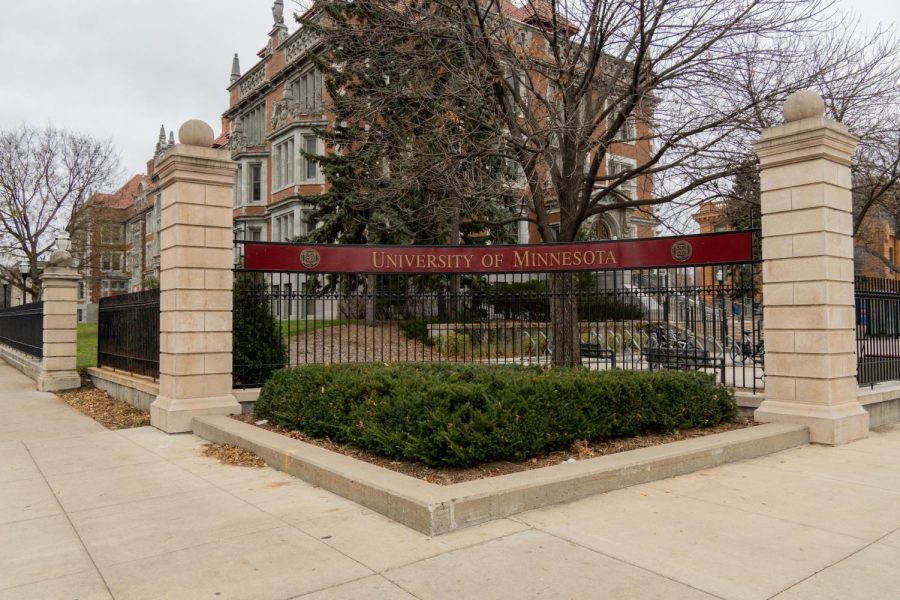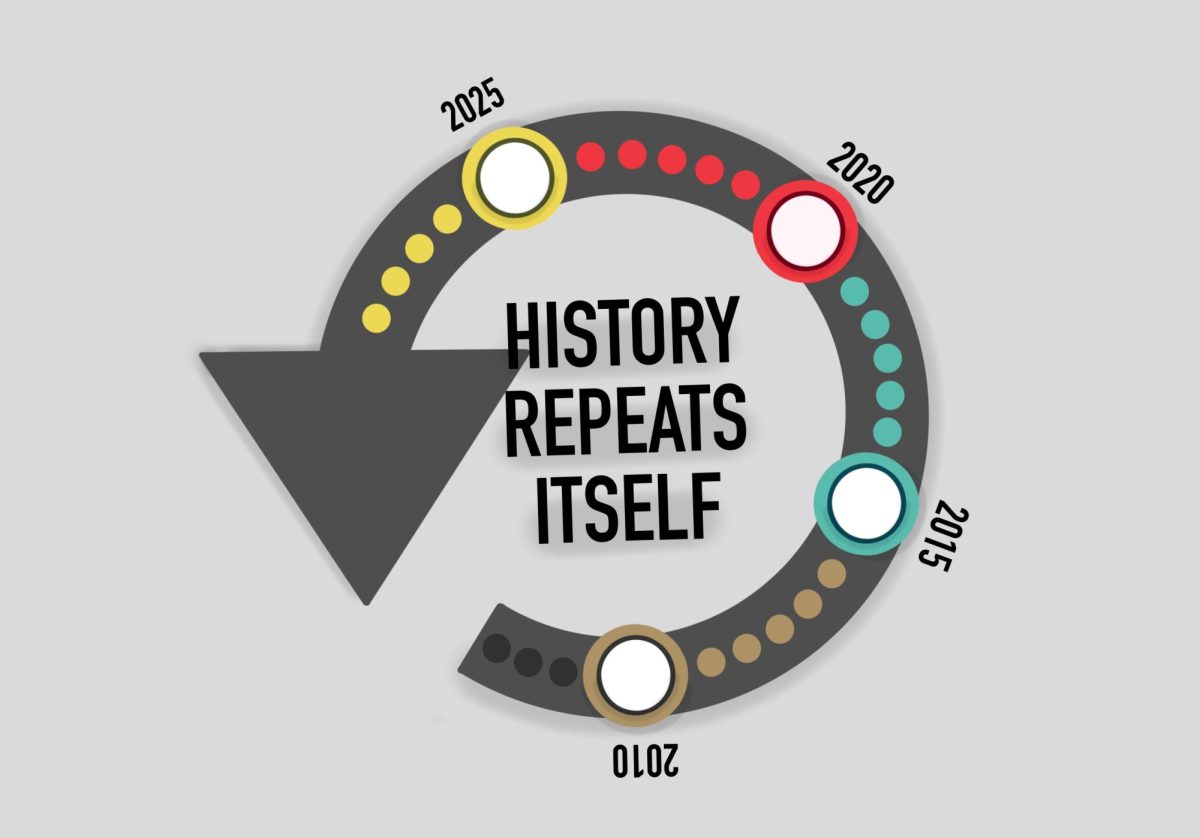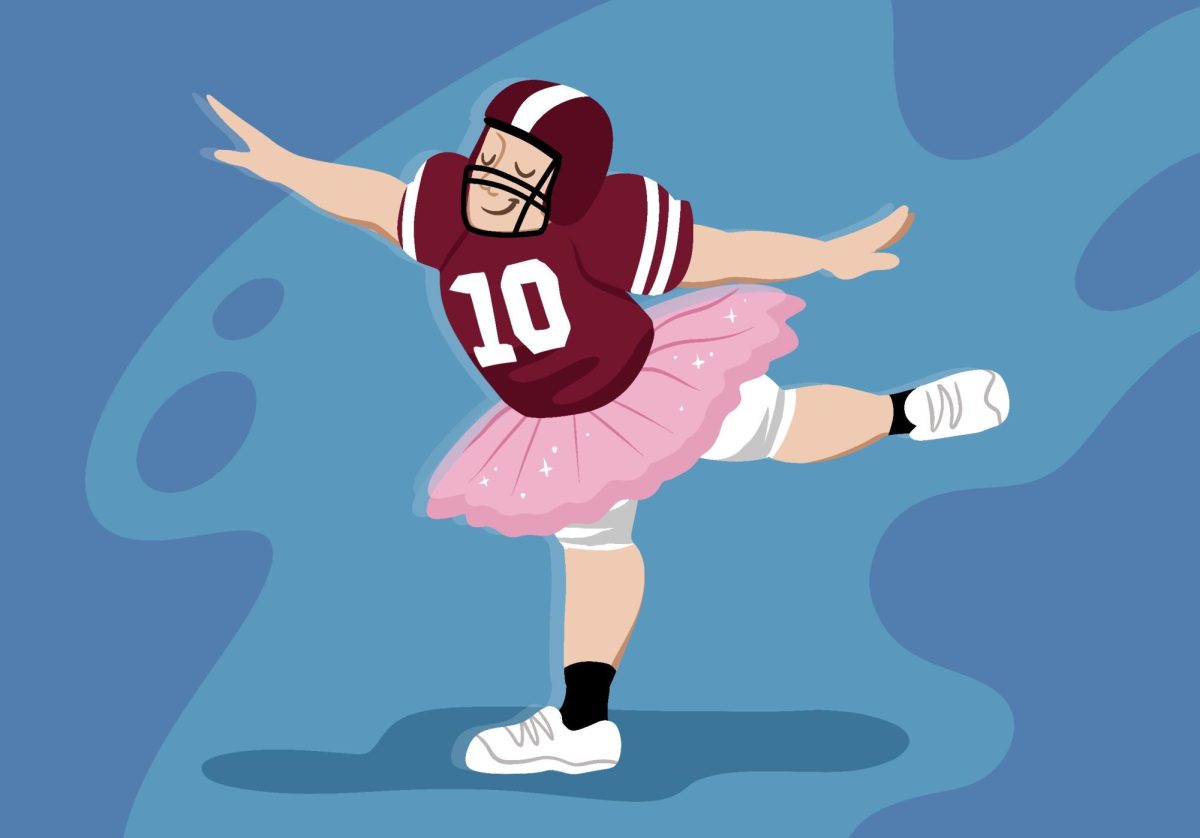Freedom of speech is, ostensibly, still the most critical tenet of our democracy. The sharing of ideas is the bedrock upon which our country was built, and to ensure its integrity for years to come, it is imperative that it remains impenetrably codified. Even as we have seen that foundation splinter and shake, our principal freedoms have been the rebar keeping us intact.
Does that mean everyone should get to speak?
There are a lot of women at the University of Minnesota — 55% of the student body, in fact. Further, many are ardent supporters of reproductive rights, as evidenced by the prevalence of the Students for a Democratic Society and the University ProChoice Coalition.
Whether or not you see it as legitimate, women, as well as anyone with the ability to become pregnant, lost a federal right last year: abortion. How must it have felt to see one of the people who helped destroy that right invited to campus to speak?
The University Law School hosted Supreme Court Justice Amy Coney Barrett as a speaker alongside Law School professor and former Executive Director for the American Bar Association Robert Stein on Oct. 16. The purpose of this lecture was to discuss why she believed the Supreme Court would benefit from a code of ethics.
Minutes into the lecture, Barrett and Stein were interrupted by raucous protestors chanting in opposition. They were promptly removed from the auditorium as Barrett looked on, expressionless, before the lecture resumed.
Needless to say, many people did not want Barrett here. Outside, the protest continued as Barrett spoke. Previously, nearly 700 students had signed a petition encouraging the Law School to rescind their invitation. Nonetheless, Barrett made it to the stage.
The Law School faculty might have guessed that her invitation would be met with scrutiny, to say the least, after such a contentious decision. Why, then, did they invite her?
“My guess is that they probably make some kind of effort to look at a range of ideological views when they invite different speakers,” said Benjamin Toff, a professor at the Hubbard School of Journalism and Mass Communication and a faculty affiliate of the Center for the Study of Political Psychology and the Department of Political Science at the University. “I suspect they didn’t do a lot of coordinating in advance.”
Seeking to understand differing perspectives is of course important. After all, as has been hammered into our minds, freedom of speech is the bedrock of our democracy, the crux of our political system, the cream base of the soup in the great American melting pot, but Amy Coney Barrett is a fly.
It is truly no wonder Barrett’s lecture was protested. To say a lot of people were angry about the overturning of abortion rights would be an understatement. Americans were palpably irate, especially regarding her pivotal role in the decision so soon after her contentious appointment.
“It’s understandable given the very controversial cases that Barrett has voted along with the majority in during her short time in the court,” Toff said. “I suspect that was a major motivation that a lot of people would be very upset about her being invited to speak on campus.”
Barrett is not the only controversial figure who has been invited to speak. Not long before her lecture, the Humphrey School of Public Affairs hosted former Wyoming Republican congresswoman Liz Cheney. On the evening of Oct. 4, she arrived for “an insightful and thought-provoking discussion” on the very same stage. Where Barrett’s arrival was marred with protest, however, Cheney’s was celebrated, Toff said.
“I think it has to be understood in the context of the focus of her talk, which was largely about her role on the Jan. 6 commission and the investigations that were held, and her role in, as she put it, standing up for democratic principles,” Toff said. “It didn’t surprise me that she was as embraced as she was.”
Cheney’s lecture was a part of the “Distinguished Carlson Lecture Series.” While conservative voices are not suppressed by any means, there is evidence that universities are overwhelmingly liberal, making them perhaps one of the few spaces where conservatives are in the minority.
If any one viewpoint were given the sole focus of the University — if conservative voices were really systematically shut out — the claims that colleges are liberal indoctrination centers might actually have some merit, but that’s not to say they have no basis in reality, however shaky.
“Increasingly, people who have higher levels of educational attainment tend to vote more democratic and they tend to be more liberal,” Toff said. “I think that’s reflected on college campuses as well, including the University of Minnesota.”
It is not a bad thing that conservatives have spoken here. Of course it isn’t. I’ve said it before, and I’ll say it again: freedom of speech is the bedrock of this institution. It is the blood in our veins, the raging fire in the American spirit. It’s the slick American oil that is refined into crisp American gasoline to power the American-built America Generator. You get the idea.
My plea is that the colleges on our campus simply use some common sense. The wound from the abortion-rights amputation is still fresh, and Barrett’s invitation rubbed salt in it.
To avoid this kind of marginalization in the future, perhaps colleges should embrace another important pillar of democracy: voting. Engage students in speaker series, and let them decide who comes. While the risk of alienation would persist, it would strengthen a sense of democracy on campus and give students a real say on who they hear from.
In any case, unless the rules change — which they certainly will not — Amy Coney Barrett will get to be a Supreme Court justice for the rest of her life. She could have spoken years from now if the Law School really wanted her perspective.
Students’ opinions should be considered on decisions like these. Next time the University wants to invite an ideologue to campus, I urge them to check their track record. If they have recently stripped a group of their rights, reconsider.
Correction: The original version of this article included the incorrect date for Liz Cheney’s visit. It was Oct. 4.
Correction: The original version of this article misstated the event that Cheney visited for. It was part of the Distinguished Carlson Lecture Series.















Aaron
Nov 7, 2023 at 1:03 pm
The bigger issue I have about campuses isn’t the message that they’re sharing. It’s the messaging they’re not saying while claiming to be unbiased due to objectiveness…. a bias in itself due to neglecting to look at the other side.
I used to not believe colleges are indoctrinating people until I started trying to bring out messaging that people aren’t saying. Then this overly accepting and inclusive environment became unaccept due to different beliefs than what they deem appropriate.